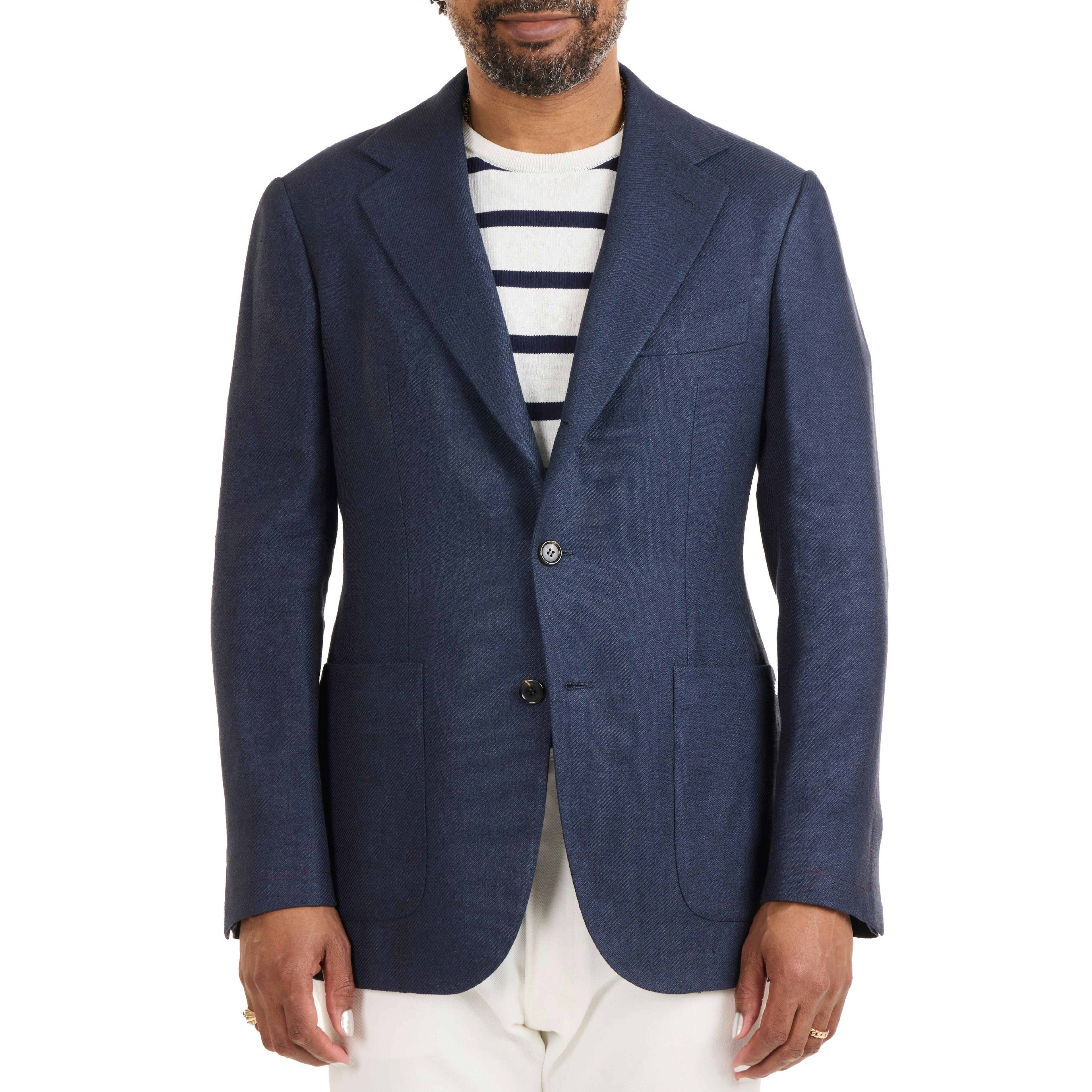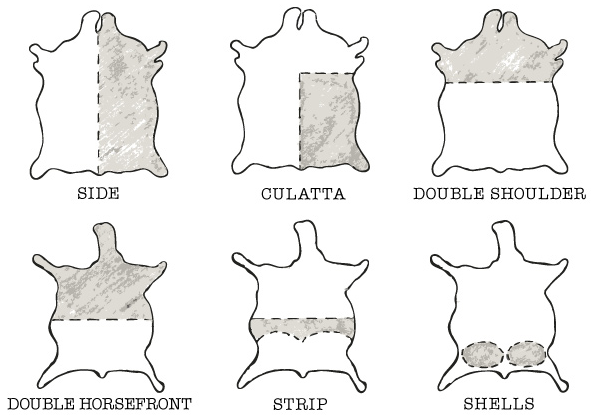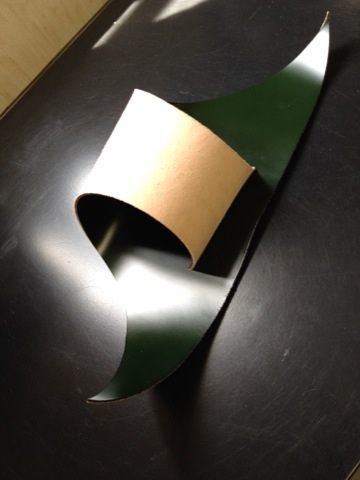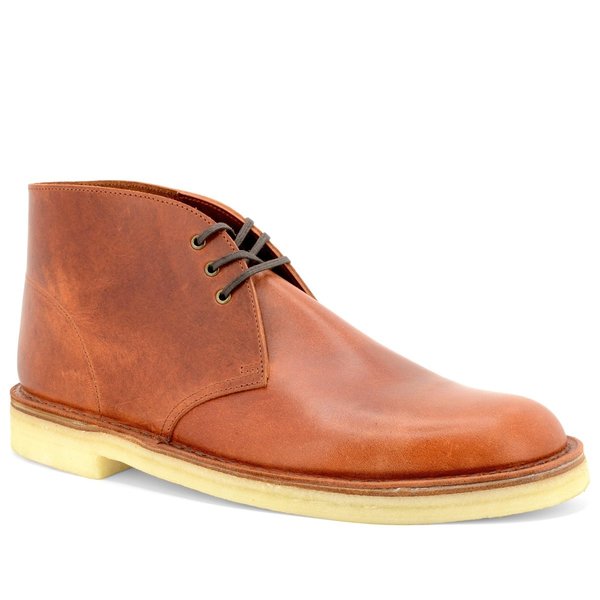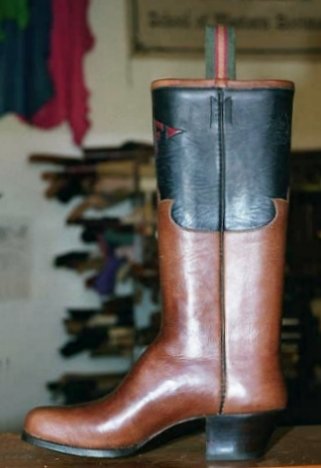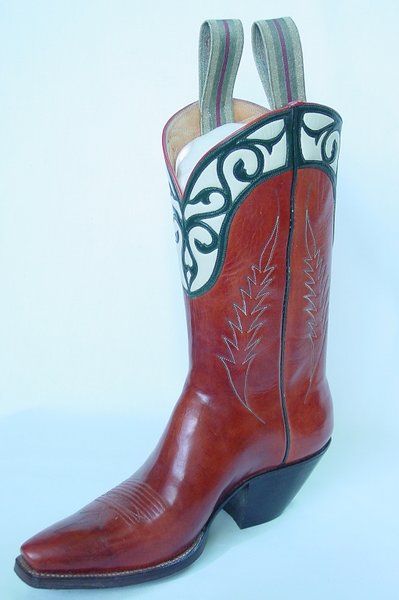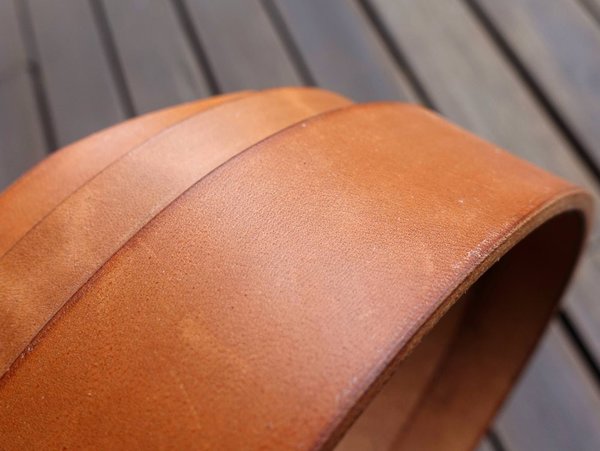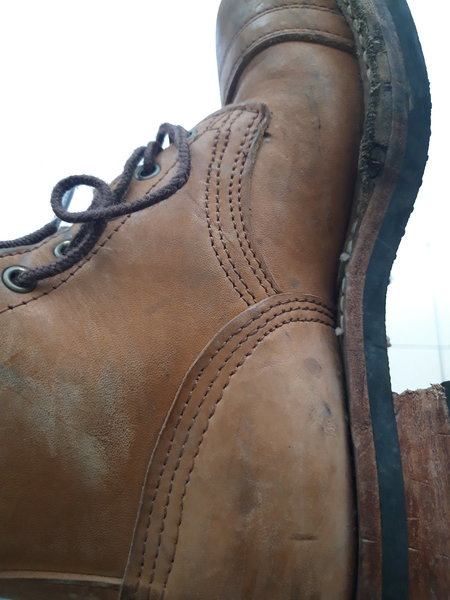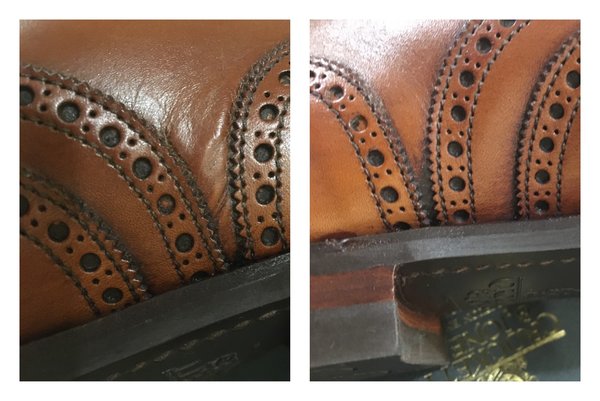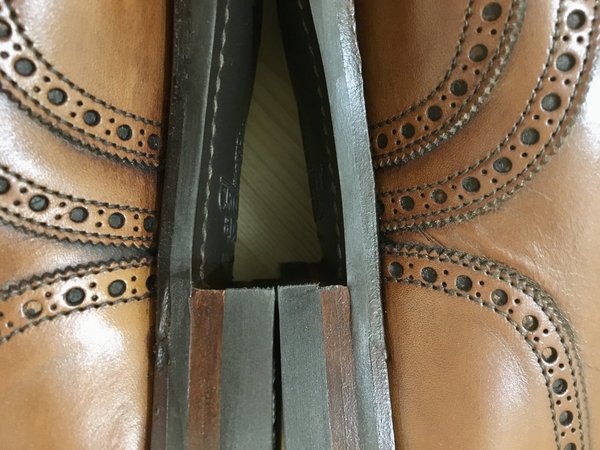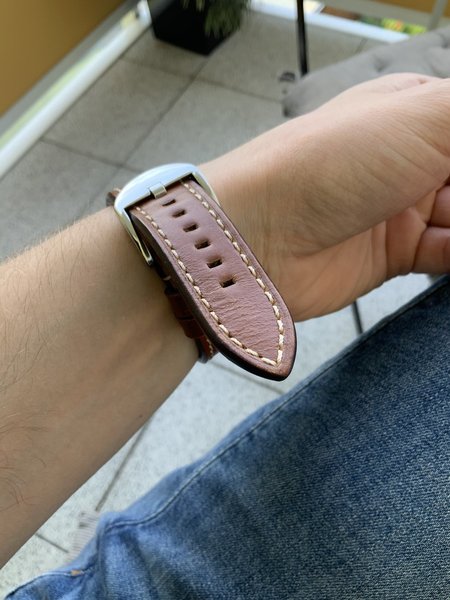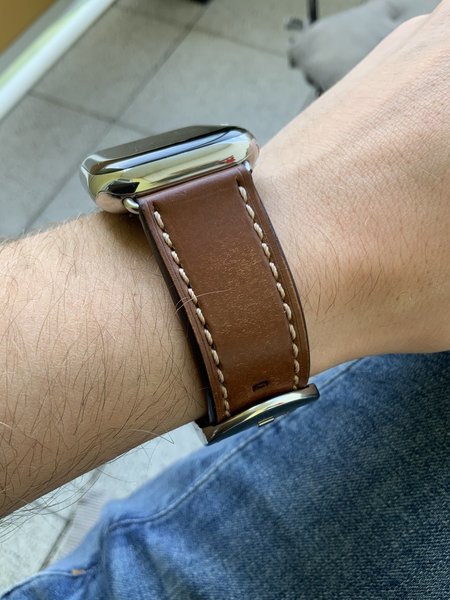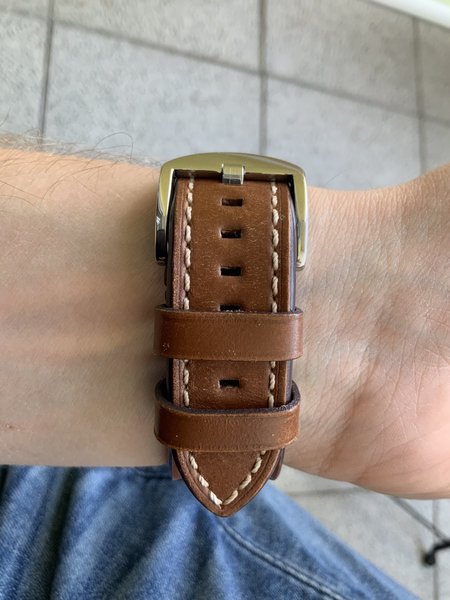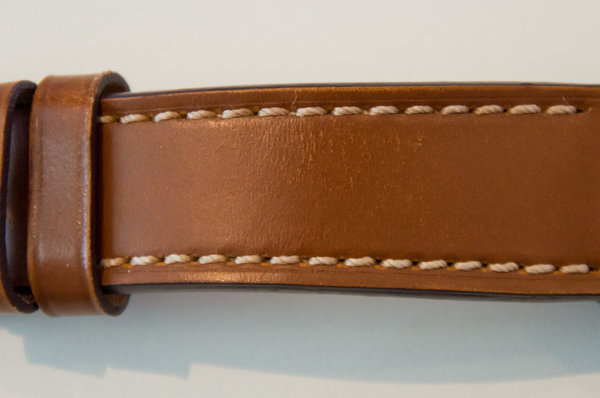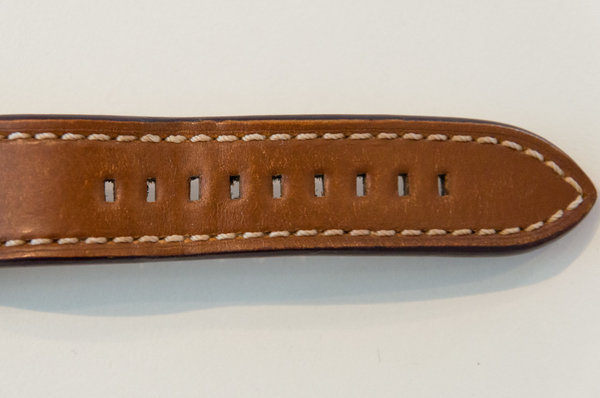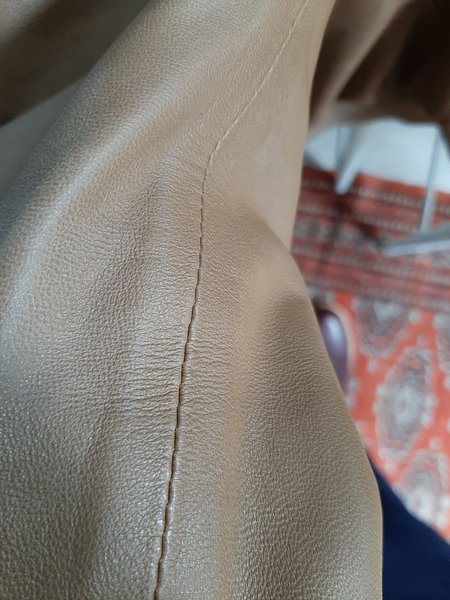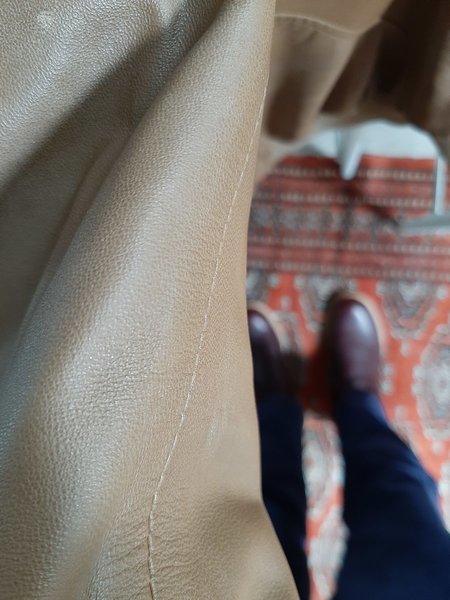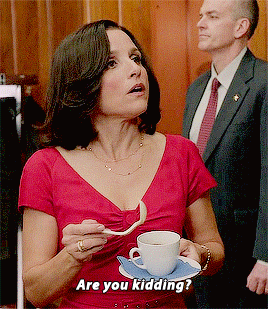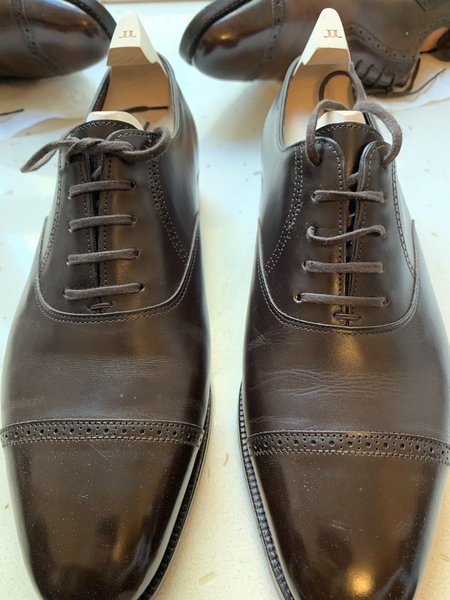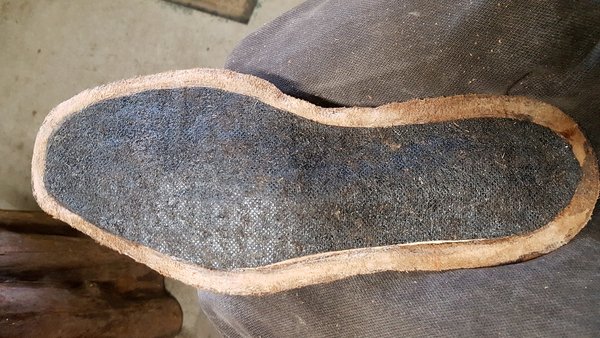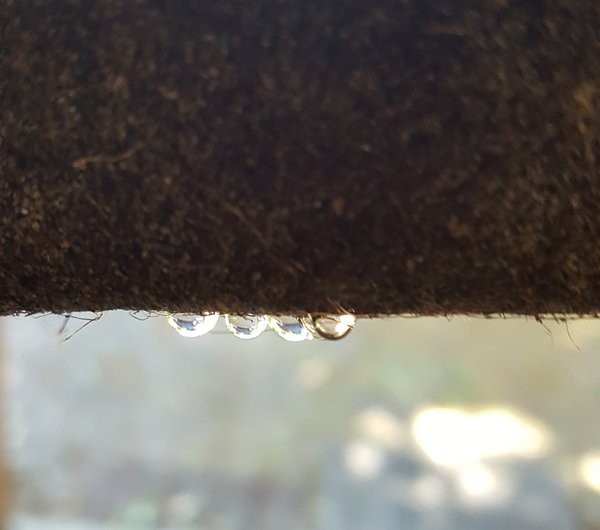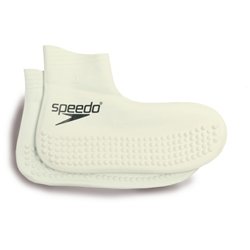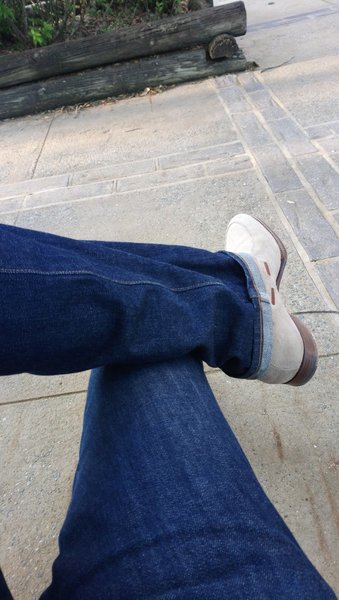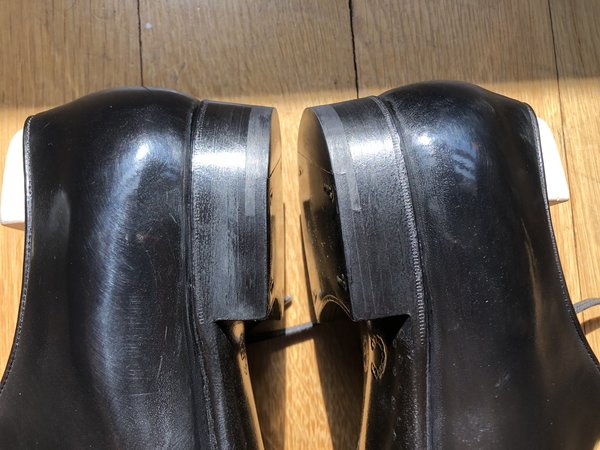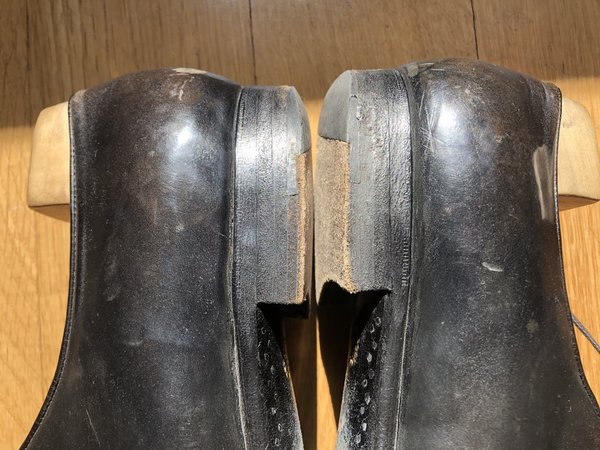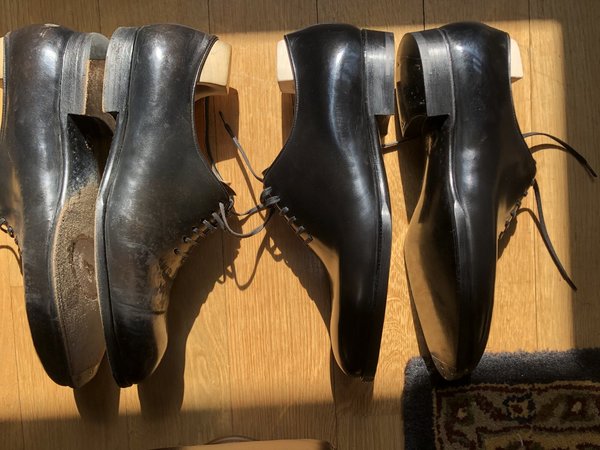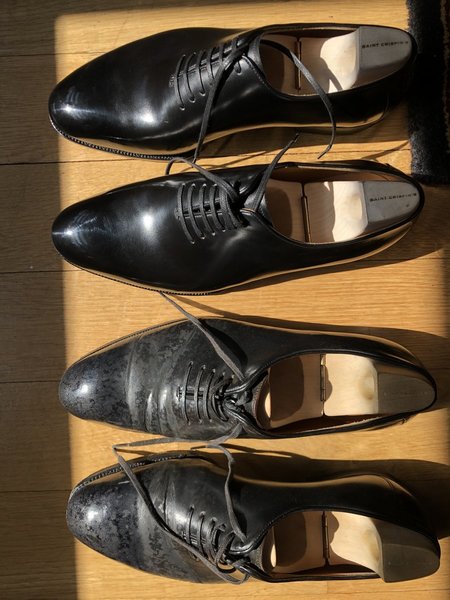cbfn
Distinguished Member
- Joined
- Dec 8, 2010
- Messages
- 2,204
- Reaction score
- 480
Thanks, this is what I was looking for. I have no plan on trying it, but the thought just crossed my mind, and I could not find any negative reasons for why it is not used; except for possibly darkening the leather.
If the leather is not an oil stuffed leather, keep such products away form your shoes. Not only will the oil permanently change the grain surface and make shining your shoe impossible, in some instances it will actually lift the finish.
What's more, mineral/petroleum based oils are not good for the leather--suffocating it, and will rot non-synthetic threads as well.
Thanks, this is what I was looking for. I have no plan on trying it, but the thought just crossed my mind, and I could not find any negative reasons for why it is not used; except for possibly darkening the leather.

